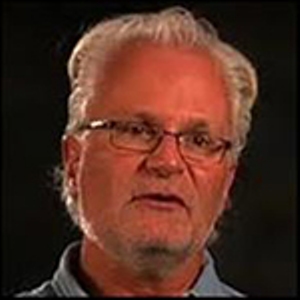The ATE program is community college-based, and as such EvaluATE places a priority on meeting the needs of this constituency. To help ensure the relevancy and utility of its resources, EvaluATE has convened a Community College Liaison Panel (CCLP). CCLP members Michael Lesiecki, Marilyn Barger, Jane Ostrander, and Gordon Snyder are tasked with keeping the EvaluATE team tuned into the needs and concerns of 2-year college stakeholders and engaging the ATE community in the review and pilot testing of EvaluATE-produced materials.
These resources distill relevant elements of evaluation theory, principles, and best practices so that a user can quickly understand and apply them for a specific evaluation-related task. They are intended to support members of the ATE community to enhance the quality of their evaluations.
The CCLP’s role is to coordinate a three-phase review process. CCLP members conduct a first-level review of an EvaluATE resource. The EvaluATE team revises it based on the CCLP’s feedback, then each of the four CCLP members reaches out to diverse members of the ATE community—PIs, grant developers, evaluators, and others—to review the material and provide confidential, structured feedback and suggestions. After another round of revisions, the CCLP engages another set of ATE stakeholders to actually try out the resource to ensure it “works” as intended in the real world. Following this pilot testing, EvaluATE finalizes the resource for wide dissemination.
The CCLP has shepherded two resources through the entire review process: the ATE Evaluation Primer and ATE Evaluation Planning Checklist. In the hopper for review in the next few months are the ATE Logic Model Template and Evaluation Planning Matrix, Evaluation Questions Checklist, ATE Evaluation Reporting Checklist, and Professional Development Feedback Survey Template. In addition, CCLP members are leading the development of a Guide to ATE Evaluation Management—by PIs for PIs.
The CCLP invites anyone interested in ATE evaluation to participate in the review process. For a few hours of your time, you’ll get a first look at and tryout of new resources. And your inputs will help shape and strengthen the ATE evaluation community. We also welcome recommendations of tools and materials that others have developed that would be of interest to the ATE community.
To get involved, email CCLP Director Mike Lesiecki at mlesiecki@gmail.com. Tell him you would like to help make EvaluATE be the go-to evaluation resource for people like yourself.
About the Authors

Marilyn Barger 
Executive Director, FLATE - Florida Advanced Technological Education Center of Excellence
Dr. Marilyn Barger is the Executive Director and Principle Investigator for the Florida Advanced Technological Education Center of Excellence (FL-ATE). This center focuses on high-technology manufacturing. Dr. Barger is also on EvaluATE's Community College Liason Panel.

Michael Lesiecki 
Luka Partners LLC
Dr. Michael Lesiecki has over 20 years of experience championing collaborative-driven development, educational program growth, assessment, and advocacy. His federal grants development, management, and evaluation experience includes proposals and projects up to $20M. With a Ph.D. in Physical Chemistry and collaborative industry experience, Dr. Lesiecki is uniquely knowledgeable about STEM education and high tech domains. Over the past two decades he has been deeply involved with the National Science Foundation’s Advanced Technological Education program acting as Principal Investigator, External Evaluator and Peer Reviewer. He now serves as the Principal of Luka Consulting LLC, a firm focused on evaluation services.

Jane Ostrander 
Director, Experiential Learning Center, Truckee Meadows Community College
Dr. Jane Ostrander is Principal Investigator for the National Science Foundation Advanced Technological Education (NSF ATE) project Destination: Problem-Based Learning (PBL) (DUE#1161352), and Director of the Experiential Learning Center at Truckee Meadows Community College, Reno, NV. Ostrander serves on the Community College Liaison Panel for the ATE EvaluATE Center and as a Mentor for the Mentor-Connect for Leadership Development and Outreach Project. Her research interests include PBL, faculty professional development, online knowledge sharing in communities of practice, and social psychological interventions for transformative change. Prior to her project work Ostrander taught computer literacy, web site design, project management, and business.

Gordon Snyder 
Co-PI, Op-Tec Center
Gordon F. Snyder, Jr. is past Executive Director and Principal Investigator for the sunsetted National Center for Information and Communications Technologies (ICT Center) at Springfield Technical Community College (STCC) in Massachusetts. He now serves as a Co Principal Investigator with the National Center for Optics and Photonics Education (OP-TEC) in Waco, Texas. At STCC he helped develop the Verizon Next Step program and continues to serve as a telecommunications curriculum consultant for the program. He is the author of four engineering and engineering technology textbooks and has over 20 years of consulting experience in the field of software development, communications and LAN/WAN design. In 2001 he was selected as one of the top fifteen technology faculty in the United States by Microsoft Corporation and the American Association of Community Colleges and in 2004 was selected as the Massachusetts Networking and Communications Council Workforce Development Leader of the year. He is well known in the social media space with his content followed by thousands.
He has a strong interest in evaluation and the development of accessible tools evaluators and PI’s can use for communications and the formative enhancement of project impacts.

Except where noted, all content on this website is licensed under a Creative Commons Attribution-NonCommercial-ShareAlike 4.0 International License.







 EvaluATE is supported by the National Science Foundation under grant number 2332143. Any opinions, findings, and conclusions or recommendations expressed on this site are those of the authors and do not necessarily reflect the views of the National Science Foundation.
EvaluATE is supported by the National Science Foundation under grant number 2332143. Any opinions, findings, and conclusions or recommendations expressed on this site are those of the authors and do not necessarily reflect the views of the National Science Foundation.